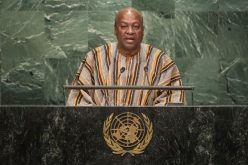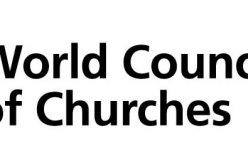 Deutsche Welle – Kenyans may lose trust in their judiciary after a corruption scandal has left President Uhuru Kenyatta with no option but to suspend Supreme Court judge Philip Tunoi for allegedly accepting bribes.
Deutsche Welle – Kenyans may lose trust in their judiciary after a corruption scandal has left President Uhuru Kenyatta with no option but to suspend Supreme Court judge Philip Tunoi for allegedly accepting bribes.
President Uhuru Kenyatta has appointed a seven-member tribunal to investigate Justice Tunoi’s conduct in connection with an election petition lodged by politician Ferdinand Waititu against his rival, Nairobi Governor Evans Kidero, over the latter’s March 2013 election victory. It is alleged that Tunoi received a bribe of $2 million (1.8 million euros).
Waititu, now a member of the Kenyan parliament, petitioned the Supreme Court to review Kidero’s election as Nairobi governor. He wants the entire judgment set aside following claims that Justice Tunoi was bribed by Kidero to rule in his favor.
The Supreme Court will decide on Friday (26.02.2016) whether to review Kidero’s election.
The embattled Tunoi sat on the election petition panel. However, he denies having ever met Kidero. “I have neither greeted him nor ever been close to him,” Tunoi said.
Earlier this month, Tunoi’s lawyer Fred Ngatia said his client was ready to face the tribunal and reiterated his innocence.
Meanwhile, Governor Kidero says he is happy with the formation of a tribunal to investigate the allegations he paid a bribe to Justice Tunoi, saying it gives him a chance to prove his innocence.
“I would like to congratulate the President for appointing the tribunal because Judge Tunoi must be given an opportunity to prove himself. However with regard to my case, it was very clear from the very beginning,” Kidero stated on Capital FM, a local radio station in Nairobi.
Judiciary riddled by corruption
Kenyan legal expert Eric Mutua thinks the scandal could grow, considering that three more judges were on the bench with Judge Tunoi.
“If the allegations are true, the judge must have taken this money on behalf of at least two or three other judges,” Mutua said.
The case tests the credibility of Kenya’s Supreme Court which was formed in 2010 when the country adopted a new constitution. Before reforms ushered in by the new constitution, the credibility of the Kenyan judiciary had been in question for decades.
However, Kenya’s Chief Justice Willy Mutunga recently stated that elections to the country’s Judicial Service Commission had been riddled with bribery.
“It causes me a lot of pain that an election involving judges and magistrates would be corrupt,” Mutunga said, adding that there was evidence to back up his allegations. “Can you imagine a judge bribing another judge so that they can vote for them?” he asked.
Kenyatta on the spot
Anti corruption watchdogs in Kenya have been questioning President Kenyatta’s efforts to fight corruption. Last year, Kenyatta refused to give in to pressure from civil society and opposition members of parliament to fire Devolution Minister Ann Waiguru after millions of euros went missing in her ministry. Waiguru subsequently resigned in September 2015.
In its 2015 Corruption Index, Transparency International ranked Kenya as a highly corrupt country in the East African region, ahead of Uganda, Tanzania, Burundi and Rwanda. Kenya is ranked 139 out of 167 countries.










